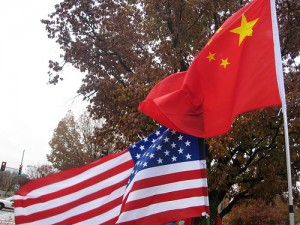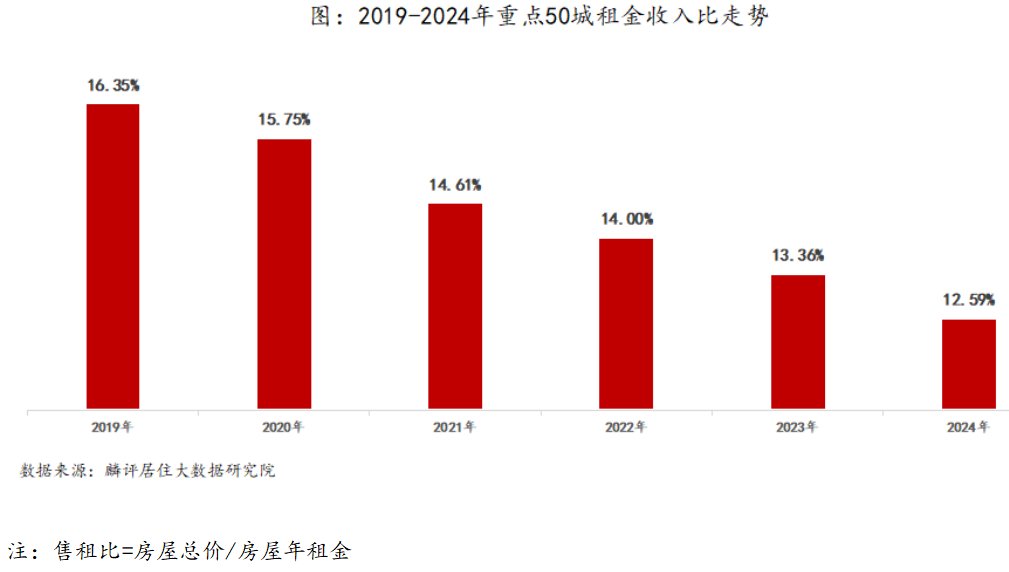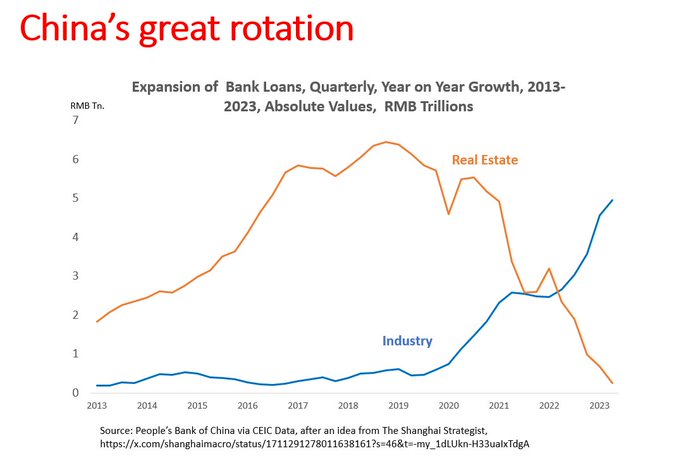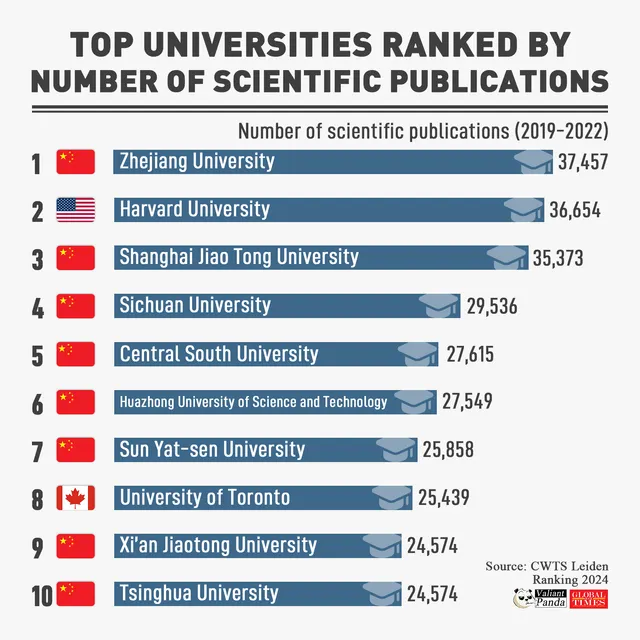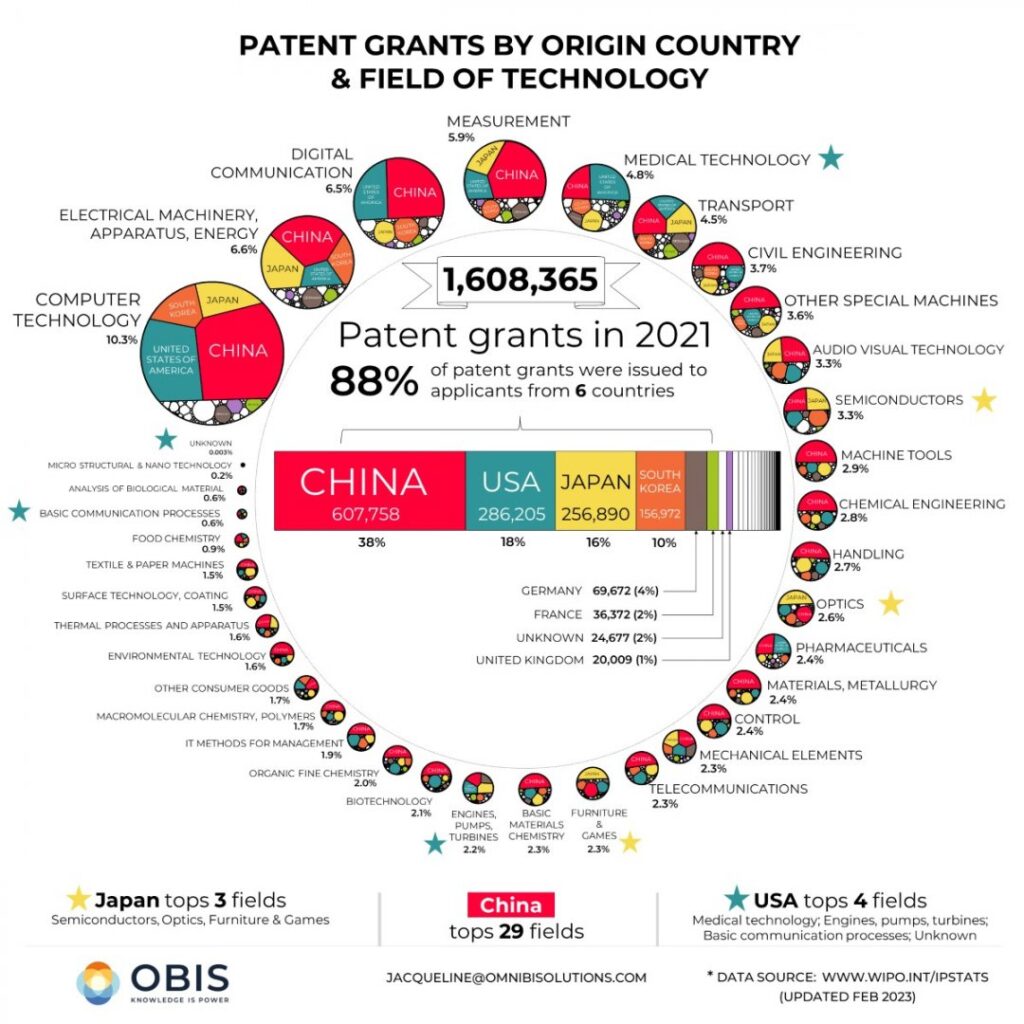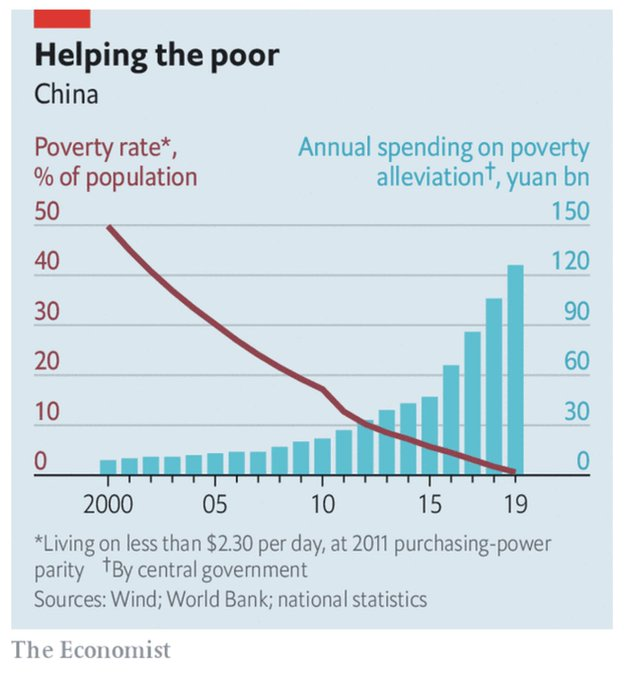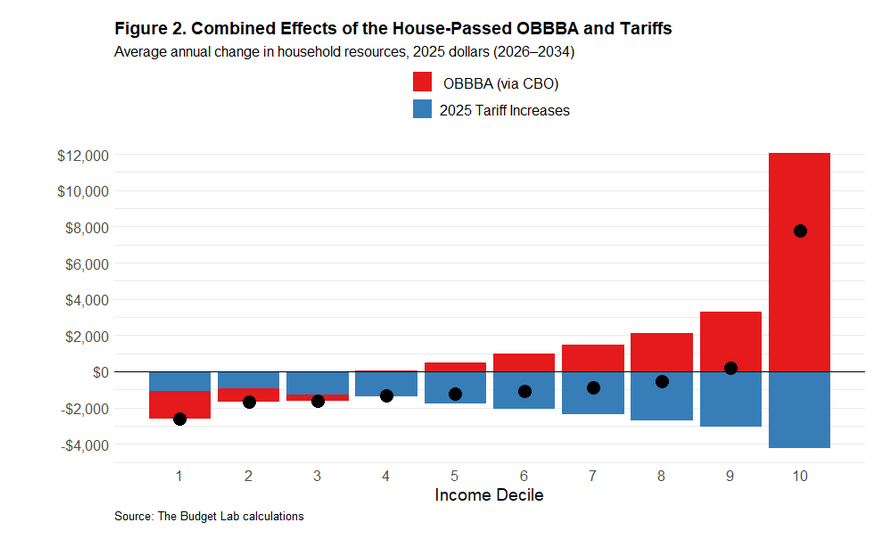Let’s run thru the important points:
Domestically in the US the only issue that really matters is affordability. Food, housing and medicine. This will dominate the next few years, maybe even the next decade. Mamdani will win, he will be blocked from doing much of he wants by courts and the the State and federal government, and his future will depend on him making those who stop him the villains. The mid-terms and the next election will be fought in bread and butter issues.
China is going to win the AI race, as predicted.
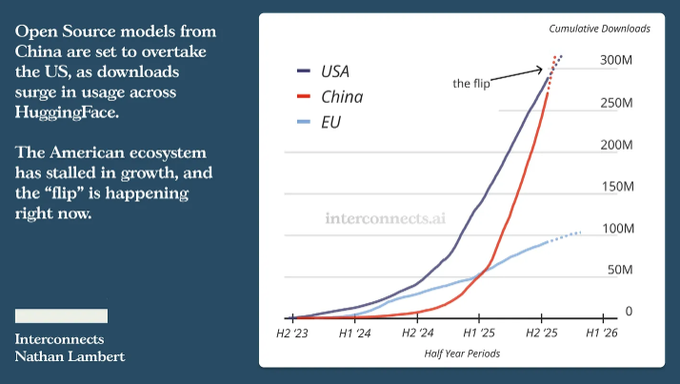 This is, again, because Chinese models are at least 90% cheaper to run, and mostly open source. Only a complete and utter moron would run their business using proprietary models where OpenAI or Anthropic can jack up the price any time they want or depreciate the model you actually needed. Even US startups agree, 70 to 80% of them are using Chinese open models.
This is, again, because Chinese models are at least 90% cheaper to run, and mostly open source. Only a complete and utter moron would run their business using proprietary models where OpenAI or Anthropic can jack up the price any time they want or depreciate the model you actually needed. Even US startups agree, 70 to 80% of them are using Chinese open models.
American AI either bursts or causes a great depression. Or perhaps bursts and causes a depression. There isn’t any other possibility. They’re spending trillions so American business can mass replace their workers. If it works, it causes a demand depression, a great depression like the Great Depression of the 30s. Who the hell do they think will buy their products? People can barely afford food and rent, let alone fancy AI crap. When they’re homeless they aren’t going to be customers. Meanwhile the rest of the world won’t be buying US AI crap either, they’ll be buying Chinese open source AI crap.
The War of attrition is nearly won by Russia. Ukraine just doesn’t have enough men and drones, it’s that simple. Next year, absent a peace deal, the big arrow moves everyone was wondering about will happen and Ukraine will be forced into unconditional surrender.
Europe is done. They’re losing their industrial base and their tech base. The people are unhappy and turning to populist opposition, either left or right. The Eurocrats are using lawfare to make outsider parties illegal if they look likely to win. This will take some time to play out. There will be changes in government away from neoliberalism, and if they can’t be achieved peacefully there will be a lot of violence. The EUs only play here is to try and gin up a war against Russia, but if they succeed, they’ll lose the war.
China and the US are now co-equal powers but that won’t last. China is on the rise, America is gutting its own science, arts and intellectual base while immiserating its own people and keeping smart foreigners out. (Or throwing them out.) All the big spend isn’t on re-industrializing, it’s on an AI moonshot which probably won’t succeed and will burst, or which if it does succeed will cause a Great Depression.
I will remind you that rich people have limited real power. They can buy a lot of influence, but if government turns on them they are done, because they do not have private armies capable of standing up to the State’s military and paramilitary forces. If the political zeitgeist turns against them, the government can make any changes it wants. Ask various Chinese billionaires how things worked out for them when the CPC decided they were too big for their britches.
One way they lose their influence is simply by having a real, undeniable depression. They’re doing everything they can to create one. If the Fed can’t bail them out, they’re done. The Fed’s ability to print dollars is going away, they have at most one large bailout left in them. After that, they can’t, because if the dollar isn’t the unit of trade for the world, over-printing will be catastrophic. Dozens of countries have found this out, again and again. Money can’t buy what your country can’t actually do, and the US can do less and less—the rich people sold America’s ability to do things to China to get three generations of fake wealth.
We are moving towards the end-game. It will take ten to fifteen years to play out. The West will be immiserated, neo-liberalism will end, US power and Empire will collapse. There will be wars and revolutions around the globe, because the force holding the world in its post-war, post-Soviet collapse state, including such things as borders, is going away. China is not likely to engage in massive military operations thousands of miles from its border and has shown itself uninterested in what happens in other countries domestically, unless they’re countries very close to it geographically.
Covid remains a thing, more specifically long Covid. We don’t measure it much any more, since governments don’t want to know, but there are multiple data points indicating its still disabling people. (I’ll do a proper article on this at some point.)
Likewise climate change and environmental collapse are real and so are resource issues. Farmland continues to lose fertility, the food-web is collapsing, the insects and fish and bird and everything else are dying and species are going extinct. This is going to cause huge problem. 1.4 billion Chinese cannot have a Western lifestyle without catastrophic environmental issues. If this is not dealt with (and it takes more than some orbital spraying to do so), the era of Chinese supremacy is not likely to last.
China will take the complete tech lead in essentially everything and they will also become the premier space-going nation. They have actually reduced carbon emissions, a good sign, and are massively planting forests. It’s not enough, but they are the only major nation taking these issues at all seriously. They look likely to start moving industry and power generation to space over the next 20 years and if they can get space mining and refining going, that offers some hope. (This is not space colonization, and the idea is to make it self-sustaining off world minus biologicals. Dropping resources from space is easy, getting resources into space is hard.)
The major geopolitical and economic issues I have been writing about for over 20 years are coming to fruition now and will play out over the next ten years. End of Empire. End of Neoliberalism. End of dollar hegemony. End of Europe. Western economic collapse. It’s all happening, exactly on schedule.
The glimmer of hope for Westerners is that political change is also coming. Put crudely, there are three possibility: authoritarian corporatism wins thru a nasty surveillance and police state; right wing populists take charge and go nasty and mean, or left wing populists take charge and actually try to help people.
The third world will find a great deal more freedom than they’ve had for a long time. China will be the superpower, but at least for the first while seems likely to be fairly laid back about it. These countries, if they cooperate with China intelligently, will have a chance to really develop, in most cases an opportunity to make it to middle income status, since they will no longer be forbidden from the policies required to actually develop, as was the case under the IMF/World Bank “development” duopoly.
This is where we are, and where we’re going. Tighten those seatbelts and make what preparations you can. Remember that things like power and water and food will become more and more unreliable. It’s been a long time since the West and westerners had to deal with such issues, but they will be on the plate for at least thirty to fourty percent of Westerners within fifteen years in nations which do not make the turn correctly, which seems likely to be the majority.
Fundraising Note: We’re about $900 from reaching our goal. Yadda yadda. If you value this site and can donate or subscribe please do. I’ll stop bothering you with these notes soon. My most profound thanks to everyone who has given and to all subscribers.

